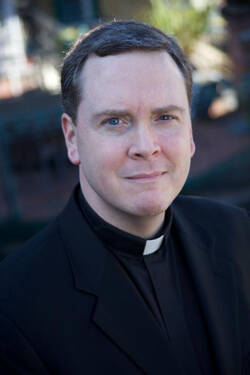There is a neatly folded Canadian flag in our supply closet, right next to a box of old metal printing plates whose usefulness has long since expired. Astute and longtime readers of this journal will know why. For several decades America was “published by the Jesuits of the United States and Canada.” That was back in the day when America—the place, that is—meant something more than the United States. The Organization of American States in Washington, D.C., for example, has nothing to do with places like Alabama and New Mexico but everything to do with places like Canada, Venezuela and old Mexico.
“The name America,” wrote our founding editor, John J. Wynne, S.J., “embraces both North and South America, in fact, all this Western Hemisphere.... True to its name and to its character as a Catholic review, America will be cosmopolitan not only in contents but also in spirit.”
I am pleased to say that the catholic, cosmopolitan spirit that Father Wynne instilled in America still animates our work. During the past 14 months, for example, America’s editors, correspondents and authors have filed stories and commentary from Rome, London, Paris, Haiti, Cuba, Honduras, Turkey and Rwanda, as well as Detroit, Chicago, Los Angeles and San Diego. Like Father Wynne, we believe that as members of a universal church, Catholics are first and foremost citizens of the world. For that reason we have a responsibility to keep abreast of important developments among the members of Christ’s body everywhere. As U.S. citizens, however, that responsibility becomes all the more important. For better or for worse, the United States is the leading player in the current act of our global drama. If the United States is going to lead the rest of the world for the foreseeable future, then it’s important that Americans know what’s happening there.
Rwanda is a case in point. As Kerry Weber writes in this issue, the 1994 genocide there “resulted in an estimated 500,000 widows and three million refugees; thousands of others were disabled and traumatized by the violence and their personal experiences.” Former President Bill Clinton has admitted that not intervening sooner in Rwanda is his greatest regret as president. Speaking to CNBC last year, President Clinton said, “If we’d gone in sooner, I believe we could have saved at least a third of the lives that were lost.... It had an enduring impact on me.” If Mr. Clinton’s analysis is correct, then an earlier U.S. intervention could have saved roughly 300,000 lives.
In the wake of the disastrous Black Hawk Down episode in Somalia the previous year, however, the U.S. public had no appetite for further humanitarian interventions. But it might have been otherwise if we had been better informed about what was happening in Rwanda or, to put it another way, if we had taken it upon ourselves to learn more about what was happening beyond what we saw in 90-second clips on the evening news. It’s easy to blame the media for our ignorance. In the United States, however, the mainstream news operates in a marketplace. In other words, they deliver every night what consumers want. If they don’t, then they quickly go out of business.
For our part, America will continue to provide a cosmopolitan, Catholic perspective for our readers. It is a modest effort when compared with the commercial powerhouses that surround us here in Manhattan; nonetheless, we are pleased and proud to do it. Father Wynne, we dare to hope, would be proud as well. We hope that you will continue to be satisfied with the result. And we even dare to dream that our ongoing efforts may draw a Canadian or two back to our masthead. After all, we’ve got the flag all ready to go.








